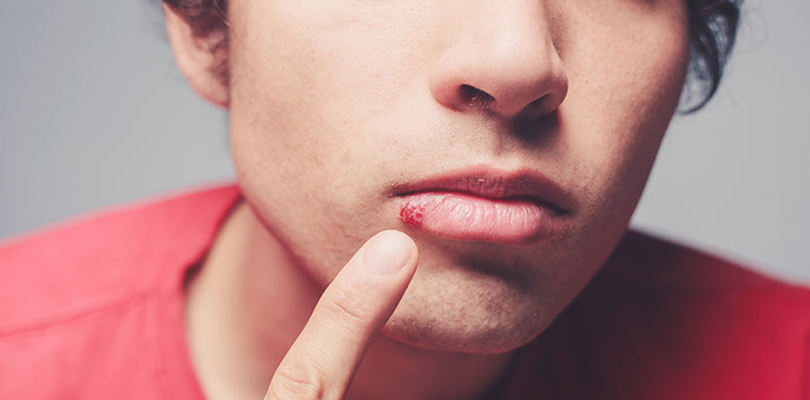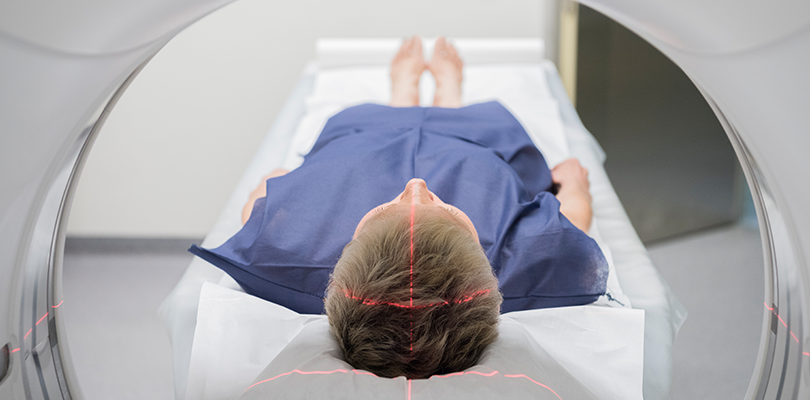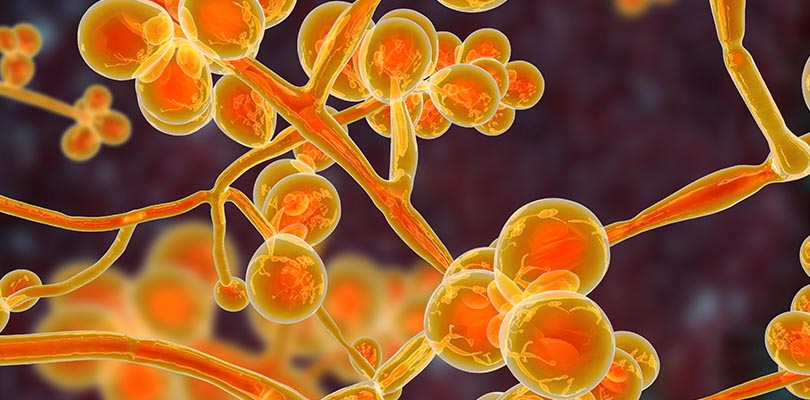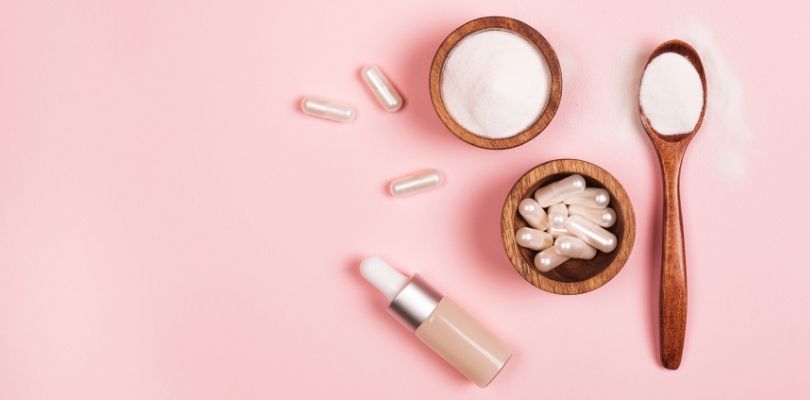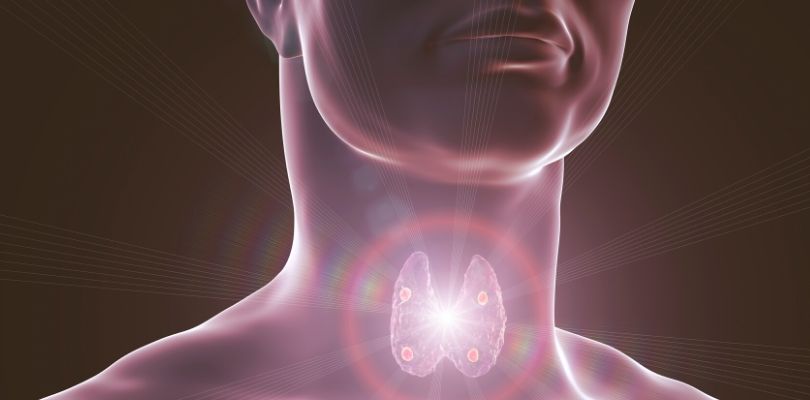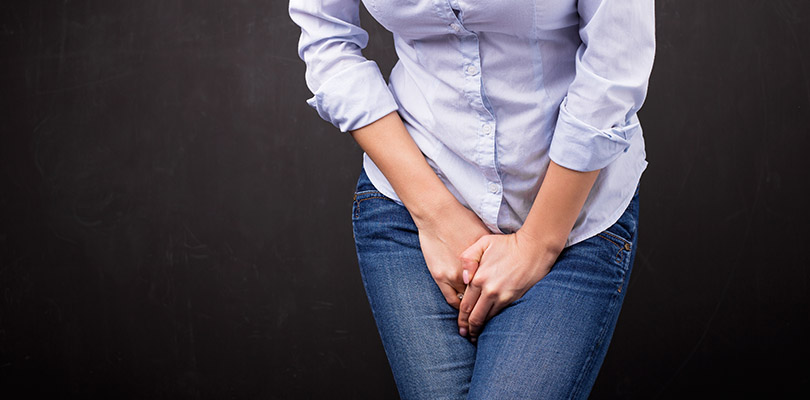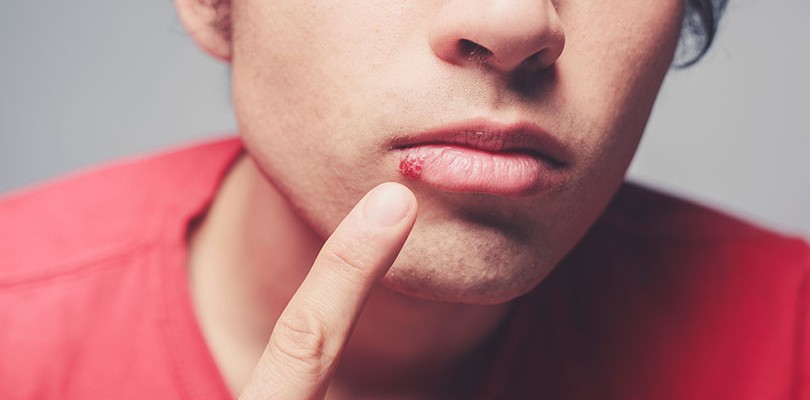
Photo Credit: lolostock / iStockphoto.com
How to Get Rid of a Cold Sore
Herpes simplex virus (HSV) is one of the most common causes of viral infections in people. HSV-1 is the most common cause of cold sores. As many as 90% of Americans have been exposed to HSV-1 because it is highly contagious and easily transmitted in saliva when kissing, or sharing items like straws, forks or toothbrushes.
Some people are more prone to cold sores than others. Some people, though exposed to the virus, have never had a sore, or had only a few outbreaks during childhood. Others have ongoing episodes of cold sores throughout their lives.
This is because once you have been exposed to the virus it will stay stagnant in your body. When the immune system is weakened by infections, during menses or times of stress, the virus reactivates and causes an outbreak. While most infections are mild and resolve spontaneously within a week, infants and people with a very weak immune system (i.e. HIV or cancer patients) can suffer serious complications from HSV-1 infections.
They’re unsightly and painful, but fortunately, there are a few things you can do to treat them. Read on to learn how to get rid of a cold sore and keep it from coming back.
1. Don’t Touch!
First and foremost, if you have an outbreak avoid touching the blisters to prevent them from spreading around your mouth or to other parts of your body.
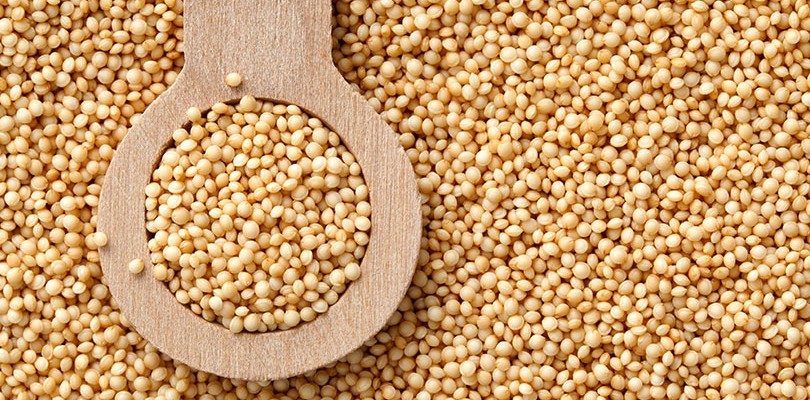
Photo Credit: Roel Smart / iStockphoto.com
2. Lysine
Lysine is a natural supplement that can decrease the frequency of cold sore outbreaks and speed up the healing process. Avoid taking high doses of lysine for a long time, and take the supplement cautiously if you have high cholesterol levels or heart disease. You can safely increase the amount of lysine in your diet by adding more lysine-rich foods like fish, chicken, and eggs.
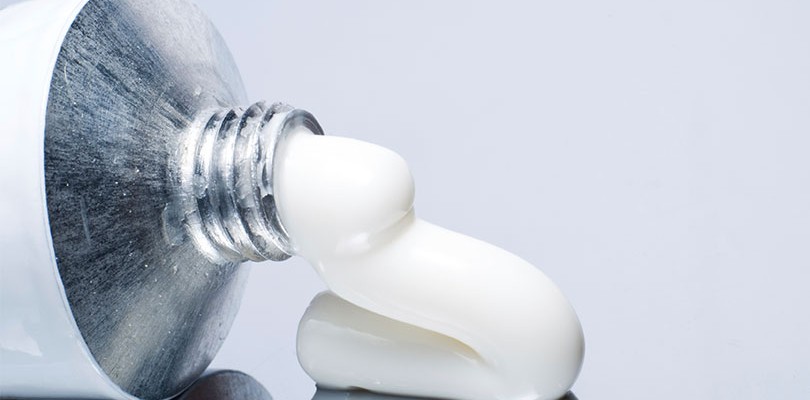
Photo Credit: gzaleckas / iStockphoto.com
3. Zinc
Zinc is a mineral with potent antioxidant qualities, thus boosting the immune system. Studies have found that zinc can fight both HSV-1 and HSV-2, and applying zinc oxide on sores can help speed up recovery time.
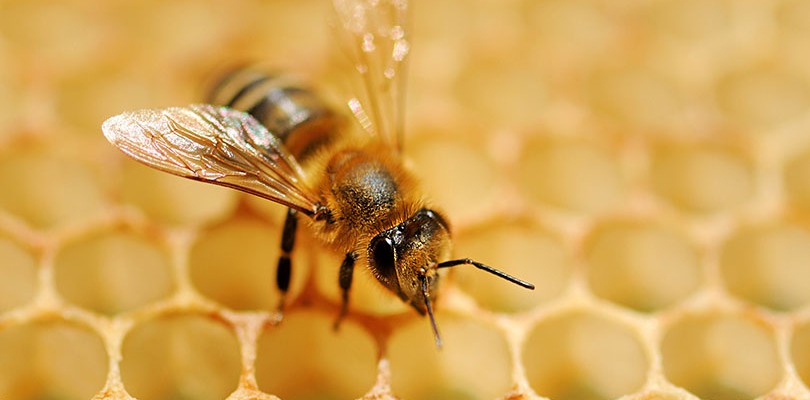
Photo Credit: Byrdyak / iStockphoto.com
4. Propolis
Propolis is a natural resin made by bees that contains plenty of antioxidants. Some research studies indicate that propolis can inhibit the replication of HSV-1 and HSV-2, reduce the symptoms and pain in affected areas, and may have comparable effects with the prescription ointment Zovirax. Use propolis cautiously if you suffer from allergies and asthma to avoid allergic reactions.
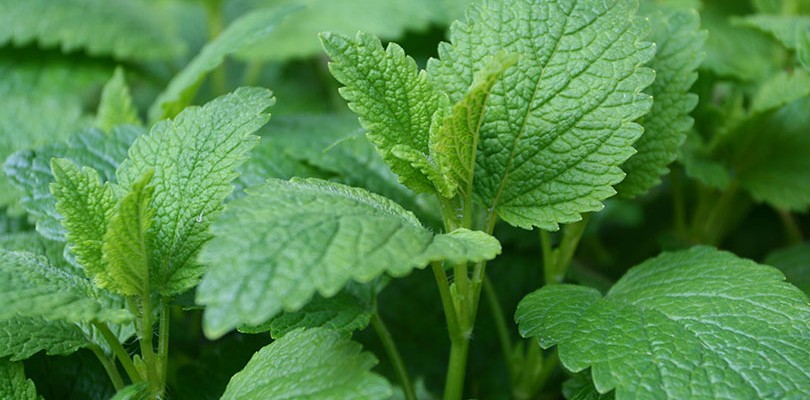
Photo Credit: VeraDo / iStockphoto.com
5. Lemon Balm
Lemon balm is a plant known to help relieve stress and anxiety, but this herb is also beneficial for cold sores management; a few studies reveal that applying lemon balm in ointment form on blisters can reduce redness and swelling in a couple of days.
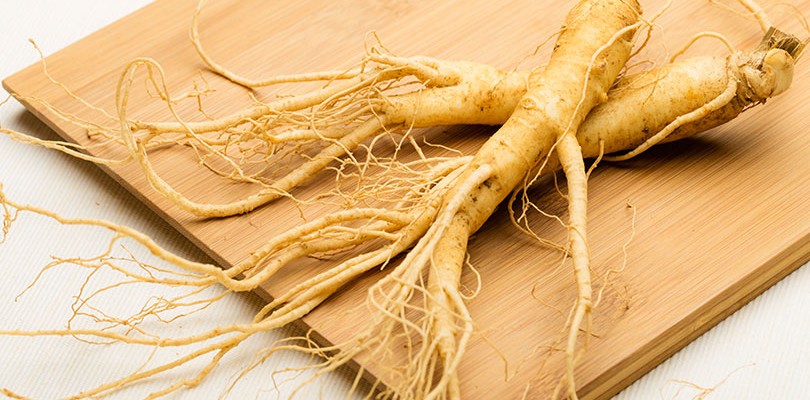
Photo Credit: leungchopan / iStockphoto.com
6. Siberian Ginseng
Siberian ginseng can reduce the frequency and severity of cold sore outbreaks while speeding up the recovery. However, it should be used cautiously if you suffer from heart diseases, diabetes of cancer.
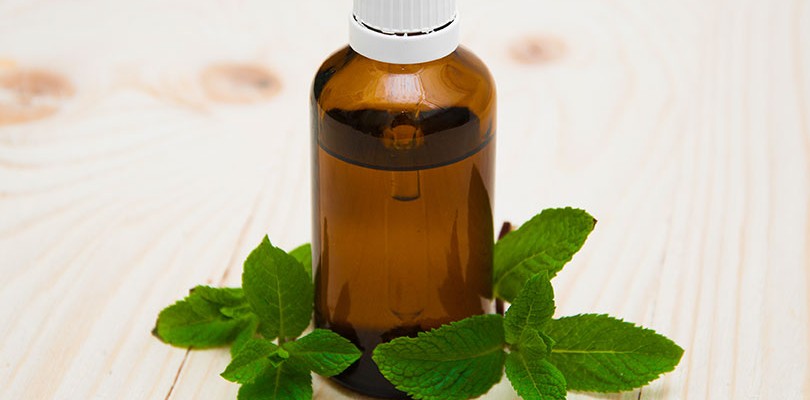
Photo Credit: Zb89V / iStockphoto.com
7. Peppermint Oil
Peppermint oil poses anti-bacterial and anti-viral qualities. This oil appears to inhibit the replication of HSV in test tubes. Furthermore, peppermint oil was found to be effective against a special strain of HSV-1 (called HSV-1-ACV (res)) which is resistant strain to prescription drug acyclovir.
When Krystina was diagnosed with a meningioma her first question was, "What is a meningioma?" Read her story about being diagnosed and choosing a treatment.

Photo Credit: ellemarien / iStockphoto.com
8. Resveratrol
Resveratrol is a well-researched supplement with multiple health benefits, including anti-aging and anti-cancer qualities. It is great for skin care and heart health and has been found to inhibit the replication of HSV-1 and HSV-2.
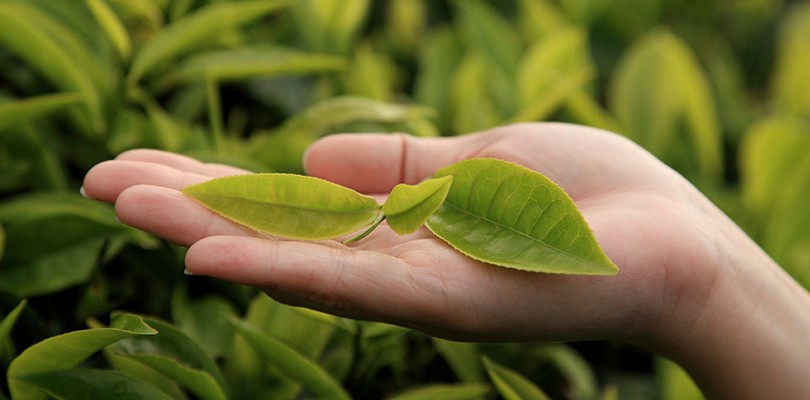
Photo Credit: shanP / iStockphoto.com
9. Tea Tree Oil
A review of studies found that tea tree oil, as well as peppermint oil and lemon balm oil, may be beneficial to manage HSV, including strains resistant to the drug acyclovir. Tea tree oil showed anti-inflammatory, anti-viral and pain relieving qualities when used in diluted form 3-4 times a day.

Photo Credit: ViewApart / iStockphoto.com
10. Be Careful Who You Kiss
To prevent getting a cold sore, avoid kissing a person who has a visible cold sore. You could still get infected with HSV from kissing a person without visible sores who carry the virus, but the risk is much lower.
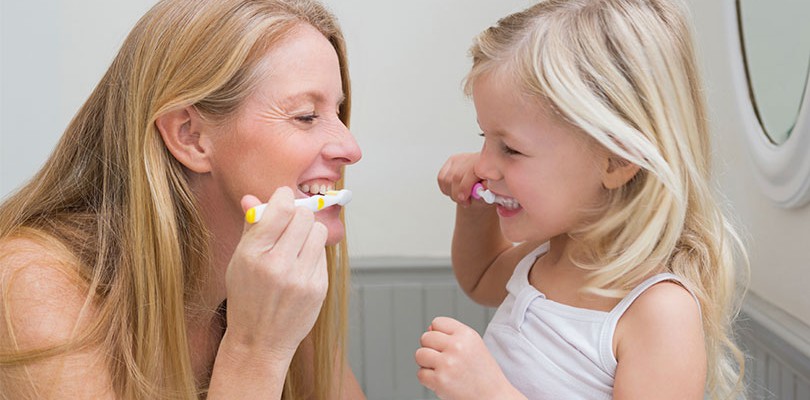
Photo Credit: 4774344sean / iStockphoto.com
11. Don’t Share Personal Items
Don’t share items like toothbrushes and razors, as this is a good way to spread the virus. It also pays to wash your hands as much as possible, especially after using public washrooms, airports, buses, ATMs, etc.
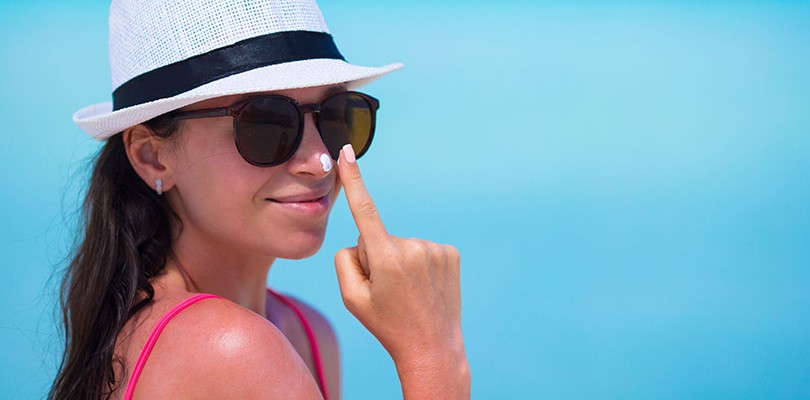
Photo Credit: travnikovstudio / iStockphoto.com
12. Be Sun Smart
Exposure to the sun is a well-known trigger for cold sores, and so you may want to limit your exposure to the sun and use sunscreen. Remember that your skin makes vitamin D when it is exposed to the sun, so if you avoid sun take vitamin D in supplement form to prevent a deficiency. Vitamin D helps keep the immune system strong and also has anti-viral effects.

Photo Credit: Zeynep Ozyurek / iStockphoto.com
13. Reduce and Manage Stress
Stress is another trigger of cold sores. Learn stress managing techniques such as deep breathing, meditation or yoga and use them regularly.
Considerations
Always talk to a healthcare professional before starting to take a supplement, to learn about the benefits, as well as possible side effects and interactions with other herbs and drugs. All herbal supplements can trigger allergic reactions in susceptible individuals. Taking the right dose is important. Since natural supplements are not evaluated by FDA for efficiency or safety, you should use a supplement from a reputable brand.
Remember that cold sores develop more often when the immune system is weak. Choose a healthy lifestyle including a healthy diet, regular exercise and stress management techniques to boost your immune system.
Candida auris is a superbug because it is resistant to multiple antifungal drugs and challenging to diagnose. Learn more about Candida auris here.
